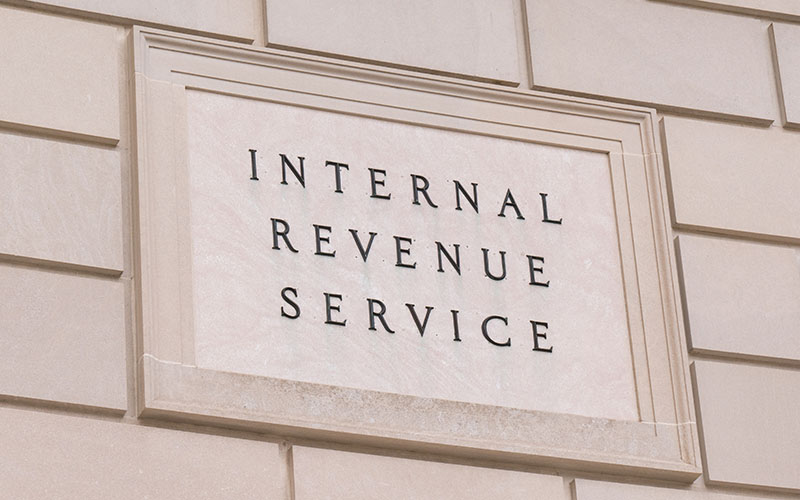IRS Offer In Compromise: How It Works And How To Qualify
Key Takeaways
- An Offer in Compromise is an agreement where the IRS allows you to settle your tax debt for less than the full amount owed
- Once approved and fully paid, the IRS wipes out your remaining debt
- An Offer in Compromise can be a powerful tax relief tool—but it requires careful planning, accurate documentation, and financial transparency

You owe a large tax debt to the IRS and you know you can pay some of it. But paying the entire bill, especially all at once, would financially strap you to a point where you couldn’t pay some of your regular bills.
Unfortunately, your income or assets are too high to qualify you for other types of tax relief, such as getting your account labeled “Currently Not Collectible”.
You want to pay off your debt but aren’t sure exactly how to begin. Does the IRS require that you pay the full amount, or is your tax debt like a bill for services, where you can sometimes negotiate down the price a little bit?
If you have a large outstanding tax bill that you owe to the IRS and you aren’t sure you’ll be able to pay the full amount, even in installments, there is an option for you:
It’s called an Offer in Compromise.
In this guide, you’ll learn what an Offer in Compromise is, whether or not your situation may qualify you for this tax debt relief, how to apply, and get some of your most pressing questions answered.

What Is An Offer In Compromise?
An Offer in Compromise (OIC) is an agreement between you and the IRS. In this agreement, the IRS agrees to take less money than it's owed in exchange for you paying off your tax debt.
If you are approved for an Offer in Compromise and make the payments you and the IRS agree to, then your debt to the IRS is cleared out.
Why Does The IRS Offer This Type Of Relief?
In short, the IRS wants the money it’s owed.
If that means they have to take a smaller amount than you actually owe, they may agree to it simply to get some of your money.
However, there are other reasons the IRS agrees to accept less money than it’s owed through Offers in Compromise.
OIC Helps Keep Taxpayers Current
For taxpayers who struggle to pay a back tax bill, filing future tax returns may be frightening. They worry that the IRS will pursue them more aggressively, or that they’ll owe even more money. By providing an Offer in Compromise to settle one back debt, it makes taxpayers more likely to file future returns, keeping current with the IRS.
OIC Allows The IRS To Collect Older Debts
Offers in Compromise also help the IRS collect on older debts that they may soon be unable to get.
By law, the IRS only can actively attempt to collect debts for up to 10 years. So for taxpayers who have debts that have been lingering for several years, the IRS may consider receiving a portion of what’s owed as far preferable to not being able to collect anything at all.
OIC Leads To A Higher Likelihood Of Collecting Payment
Even though the IRS has a lot of tax debt collection weapons in its arsenal, including wage garnishments, levies, and collection agencies, it isn’t always easy to get people to pay up.
By offering an option where a taxpayer can pay less than what they owe and get the debt wiped off their record, the IRS has a higher chance of collecting a larger portion of owed debts.
In addition, some taxpayers have such low incomes and low levels of assets that traditional tactics don’t work.
Types Of Offers In Compromise
There are two types of Offers in Compromise: Lump Sum and Periodic Payment.
Lump Sum Offer
With a lump sum Offer in Compromise, you are expected to pay the full agreed amount of your offer within five months of the date the IRS approves. For the IRS to even consider your Offer in Compromise application, you must pay a 20% non-refundable down payment with your application.
This down payment won’t be refunded to you even if your Offer in Compromise is not accepted by the IRS, so consult with a tax professional and carefully consider all your options before pursuing a lump sum Offer in Compromise.
Periodic Payment Offer
A periodic payment Offer in Compromise allows you a little more time to pay your agreed amount - 6 to 24 months from the date of your offer’s acceptance.
When applying for a periodic payment Offer in Compromise, include your first payment with your application.
Who Qualifies For An Offer In Compromise?
Offers in Compromise aren’t given out to everyone who requests them.
There are three conditions that make your application for an Offer in Compromise more likely to be accepted:
- You can’t afford to pay the full amount. You don’t currently have the income or assets available to allow you to satisfy paying the whole amount, and you won’t before the 10-year statute of limitations is up.
- Economic hardship. You can prove that paying the full amount would cause you economic hardship, such as not having enough to pay your rent.
- Doubt over what you owe. Your records on what you owe the IRS and the IRS’s own records of what you owe are very different. This could mean there’s doubt that you owe any back taxes at all, or doubt over how much you owe. You must be able to show records to prove this discrepancy.
In addition to meeting one or all of the above criteria, taxpayers seeking an Offer in Compromise must:
- Have filed all required tax returns
- Be up-to-date with estimated tax payments for those who are self-employed or own small businesses
- Be up-to-date with federal tax deposits for those who own businesses with employees
- Not currently be in the midst of an open bankruptcy proceeding
Why Seek An Offer in Compromise If I Dispute What The IRS Says I Owe?
If you dispute how much the IRS says you owe, or whether you owe at all, you may wonder why you’d bother seeking an Offer in Compromise and not just taking your case to court.
There are a few reasons taxpayers choose Offers in Compromise in these situations instead of going to court:
- Court can take a while. The process of sending a tax case through court can take some time. While you’re waiting for your court date, the IRS still can seek collections actions against you, report to credit agencies, and other things to attempt to collect on the debt they say you owe. This could cause you difficulty getting loans, finding housing, getting a job, and could cause your wages or bank accounts to be garnished.
- The IRS wins 80% of its court cases. Many people don’t want to try beating the odds and taking their case to court, even if they feel they’re in the right.
- Court can be expensive. Most taxpayers don’t feel confident enough representing themselves up against the IRS, so they hire attorneys. This can cause a disputed tax bill to balloon into much larger expenses, and you may still be ordered to pay some or all of your back taxes at the end of the process.
- Court decisions are final. Once a judge hands down a decision in your case, you have no other options to negotiate with the IRS. That means you will not be able to seek an Offer in Compromise or other tax relief on the amount the judge says you need to pay. You have to pay the full amount by the date the court gives you.
For many people, taking an Offer in Compromise and paying something, even when they think they owe nothing, may be less expensive, stressful, and risky than dealing with the IRS in court.
How Does The IRS Determine Who Is Eligible For An Offer In Compromise?
To qualify for an Offer in Compromise, the IRS evaluates two things:
- Your “reasonable collection potential”, and
- Whether your Offer in Compromise is the maximum amount you can afford to pay
When calculating your reasonable collection potential, the IRS factors together all your income sources, including wages, future potential wages, any investments you may have, and any assets that could be liquidated to help pay for the debt, such as real estate and cars.
This number is compared to your total tax debt. If the total tax debt is higher than your reasonable collection potential, then your Offer in Compromise may be considered by the IRS.
Your proposed Offer in Compromise also must be deemed the maximum amount you can afford to pay. This is determined by comparing your tax debt to your reasonable collection potential.
If your reasonable collection potential is lower than your tax debt, but the offer you made to the IRS is much lower than your reasonable collection potential, your Offer in Compromise may be denied.
That’s why it’s important to carefully consider all factors before making an offer to the IRS, and you may want to work with a tax professional to make these calculations.
How To Apply For An Offer In Compromise
When applying for an Offer in Compromise, you need to submit several completed forms, as well as a payment, to the IRS.
- Complete and sign Form 656, the application for an Offer in Compromise. On this form, you will select whether you want a lump sum OIC or a periodic payment OIC, and how much you plan to offer.
- Complete and sign Form 433-A (OIC) for individuals or Form 433-B (OIC) for businesses. This form requires you to include information about your household, any assets you own, and your income.
- A $186 application fee, unless you meet the Low-Income Certification requirements.
- Your 20% deposit for a lump sum OIC or your first payment as laid out in your Form 656 application for a periodic payment OIC, unless you meet the Low-Income Certification requirements.
If you and your spouse owe joint tax debts as well as separate tax debts, or you owe both individual and business tax debts, you need to submit separate a Form 656 for each debt.
Each Form 656 must also be accompanied by a $186 application fee and initial payment (unless you qualify for Low-Income Certification).
How Do I Know If I Qualify For Low-Income Certification?
Whether you qualify for Low-Income Certification depends on your gross monthly income, your household size, and where in the country you live. Specific information can be found on Page 2 of Form 656.
If you meet the Low-Income Certification requirements, you:
- Do not have to pay the application fee.
- Do not have to send your down payment or initial installment payment.
- Will not need to make monthly installment payments while your offer is being considered.
How Does The IRS Calculate How Much You Can Afford To Pay?
Because the IRS wants to fully maximize its ability to collect money from taxpayers, it will accept no less than the maximum amount you can afford to pay.
The way the agency arrives at that number boils down to a calculation involving the reasonable resale value of any property you could liquidate as well as your monthly disposable income. The number the IRS uses to determine how much of your debt you can pay is known as the “reasonable collection potential.”
To determine your reasonable collection potential (RCP), your monthly disposable income is multiplied by 12 if you’re applying for a lump sum OIC and 24 if applying for a periodic payment OIC.
That number is then added to the quick sale value, or 80% of the fair market value, of your assets. These assets include property, jewelry, vehicles, and other investments.
A tax relief professional can help you run these calculations for your individual situation to get an estimation of what numbers the IRS may use when factoring your OIC.
Things To Remember When Negotiating An Offer In Compromise With The IRS
Here are some things you’ll want to keep in mind when considering whether an Offer in Compromise is your best option, and when applying for your OIC:
- When providing detailed income and asset information to the IRS, you could open yourself up to serious consequences such as an audit if you reveal that you were untruthful on past tax returns. It may be best to work with a tax professional if you think this might impact your situation.
- Make sure you can realistically pay your proposed installment payments every month, not just a few times. Missing or late installment payments open you up to added interest and fees.
- When you apply for an OIC, the statute of limitations for the IRS to collect on your debt is put on hold. Consider this if you are nearing the 10-year mark on owing your back tax debt.
- Don’t offer to pay more than you can afford when paying a lump sum. Your initial down payment of 20% is non-refundable even if the IRS denies your application for an OIC or you fall behind on payments.
- If the IRS rejects your offer, you have 30 days to appeal the decision.
- While you are still paying off your OIC, any tax refunds you receive are kept by the IRS and applied to your overdue balance. This does not decrease your installment agreement payments, just your overall total balance, so keep paying your agreed amount each month.
- Keep track of the date you applied for an OIC. If the IRS does not accept, reject, return, or withdraw your application within two years, the offer is considered accepted.
- If your offer is rejected, apply again. When you receive your denial, the IRS should include the minimum offer you should make based on your financial information. If you believe there are errors in the financial information the IRS used in calculating this minimum amount, request a transcript of your account to check for errors.
- If you submit an application for an Offer in Compromise, any levies and garnishments are generally put on hold. However, the IRS may still file a tax lien on your property during the application process.

Connecting You With Qualified Tax Debt Relief Professionals
When applying for an Offer in Compromise or other tax debt relief, you want a team of knowledgeable, skilled professionals to work on your case.
At the Credit Review, we make finding the right tax relief service easier than ever before. Just look through our collection of top-rated tax relief professionals and choose the one that’s right for you.
How Long Does It Take To Get A Decision?
Depending on how complex your tax debt and financial situations are, many taxpayers applying for Offers in Compromise receive a decision anywhere from four weeks to eight months after their application.
However, if you do not hear anything from the IRS for two years from the date you applied, whether that’s acceptance of your offer, denial, or withdrawal, your offer automatically is approved.
Do I Need A Tax Lawyer Or Tax Debt Relief Professional?
While you can apply for an Offer in Compromise on your own, making the correct calculations to propose the minimum acceptable offer to the IRS is best left to a professional.
What Happens If My Request Is Denied?
You have 30 days from the date the IRS denies your Offer in Compromise to appeal the decision.
Does An Offer In Compromise Affect My Credit Score?
As long as you satisfy the terms of your agreement with the IRS, your credit score will not take a hit for having an Offer in Compromise. The IRS only reports delinquent accounts to credit agencies, not which individual taxpayers enter into agreements with them.
Do I Wait Until My Offer Is Accepted Before Paying More?
No. Send your first payment with your application - a 20% down payment for a lump sum OIC or your first projected monthly payment for a periodic payment OIC - and continue to pay as you outlined in your application while you wait for a decision.
Not paying during the waiting period can lead to your OIC application being denied.
What Happens While My Application Is Being Considered?
While your OIC is being evaluated by the IRS, several things change or continue to happen, including:
- All your non-refundable payments made will be applied to your total outstanding balance. If you have more than one year’s debt you’re paying on, you can designate which tax year a payment should be applied to.
- A Notice of Federal Tax Lien may be filed by the IRS; other collection activities, such as collections calls and letters, are suspended.
- The 10-year statute of limitations is paused and begins tolling again once the IRS makes a decision.
- You must continue to make all payments on your OIC as laid out in your application. These payments will be applied to the balance of your debt.
- You are not required to make payments on an existing installment agreement if you have one.
- If you do not hear from the IRS about your OIC within two years, your offer is considered automatically accepted.
How Do I Know If I Qualify For An Offer In Compromise?
One way to see if you qualify for an OIC is to work with a tax professional. They will look at your financial information and run the same calculations the IRS does, giving you a pretty good idea of whether or not your application will be accepted.
You also can get a rough idea of whether or not you qualify by using the IRS Offer in Compromise Pre-Qualifier Tool. It asks you some basic questions, then has you fill in information about your assets, income, and expenses.
Edited by:
Bryan Huynh
•
Product Tester & Writer



























